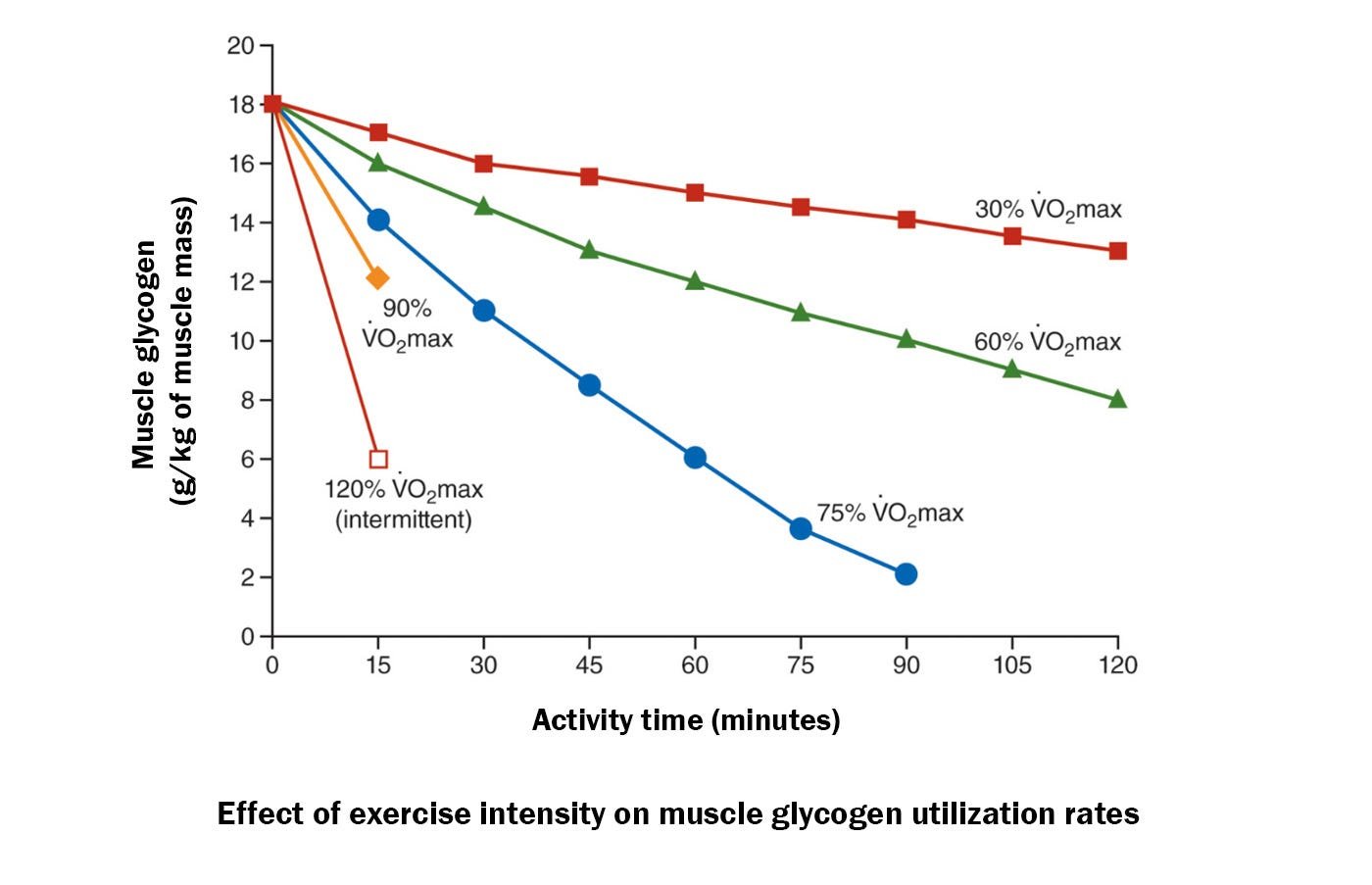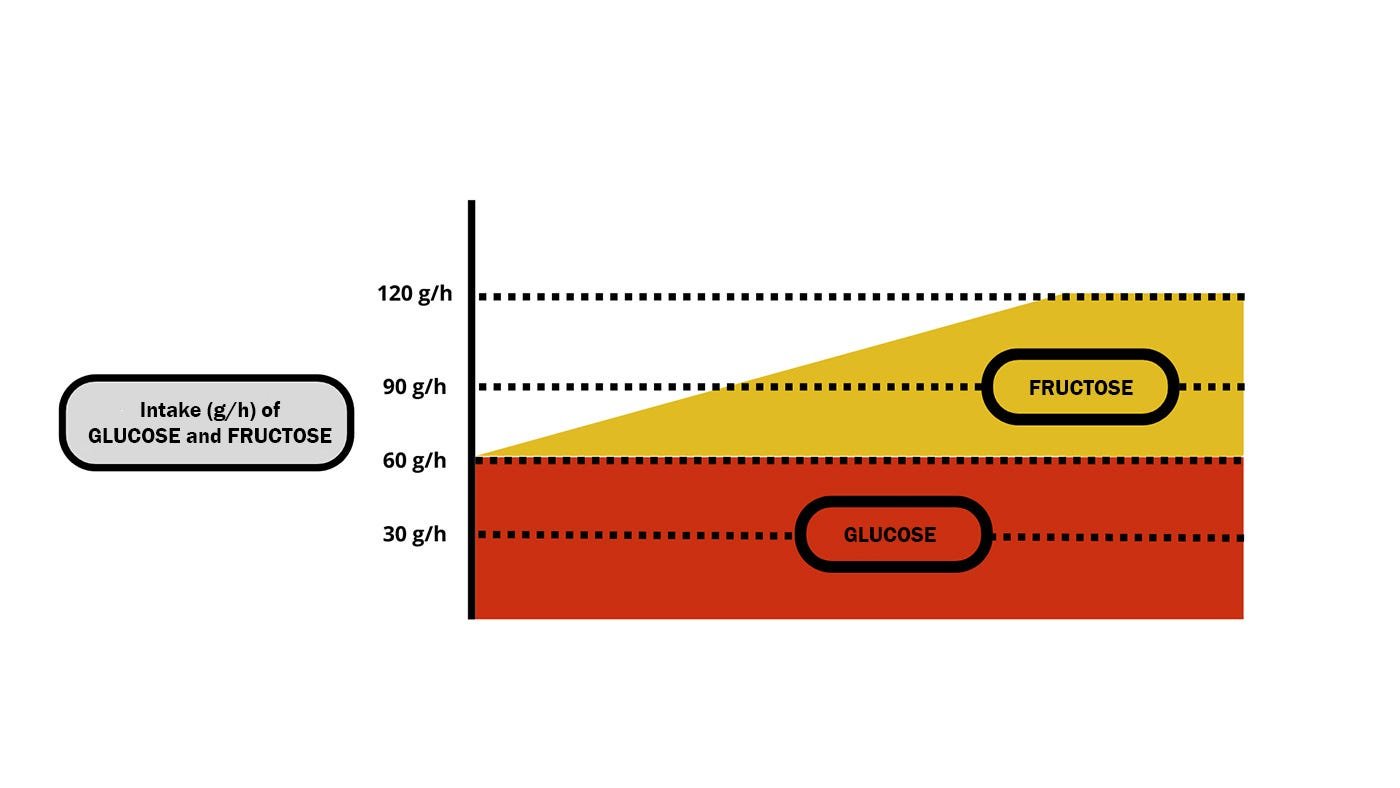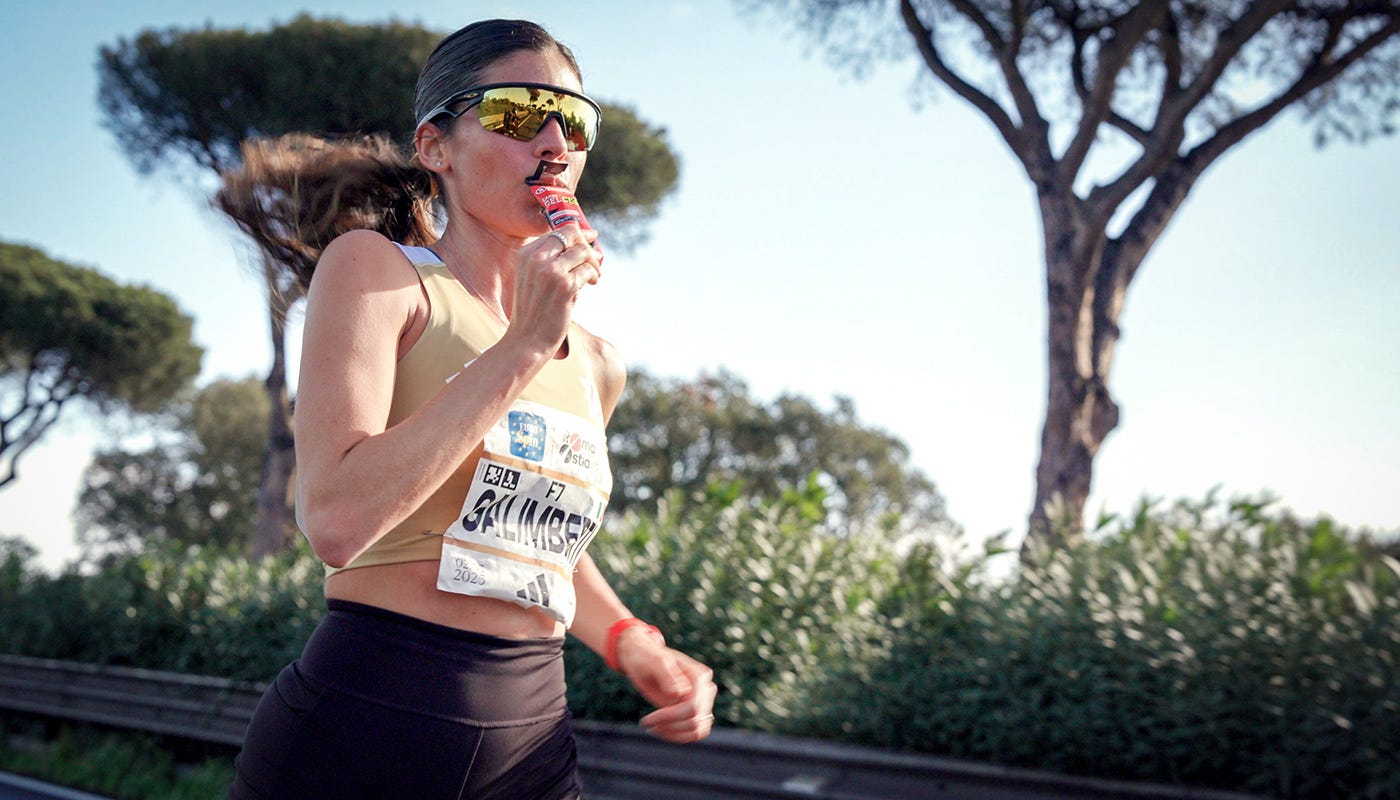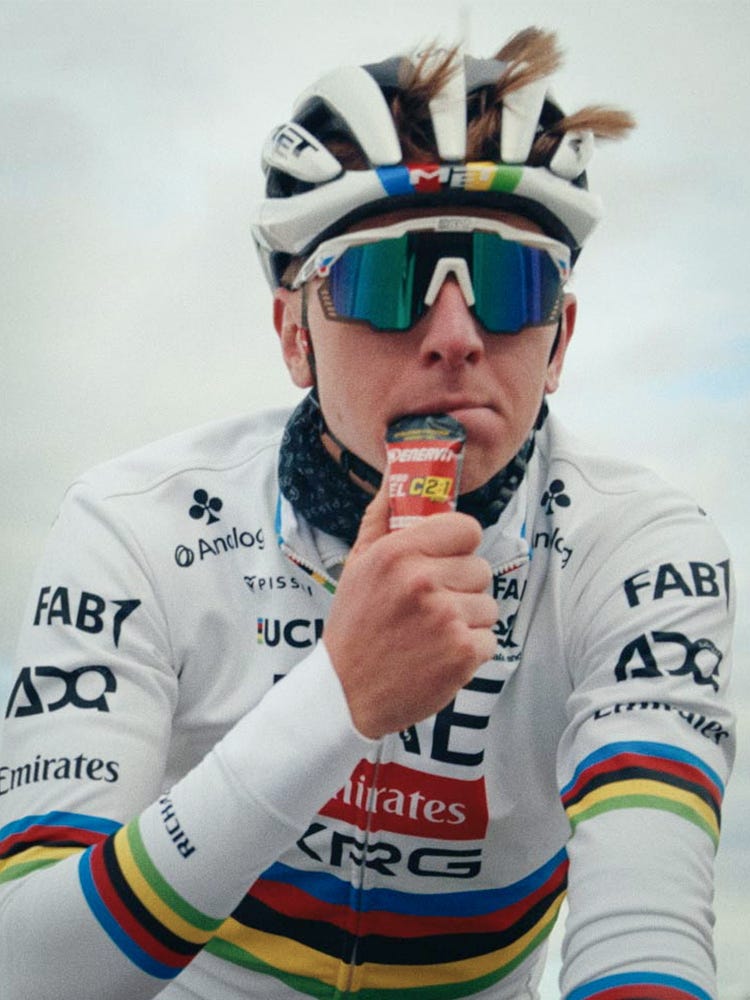SPORT
The importance of carbohydrate supplementation during physical exercise
The importance of carbohydrate supplementation during physical exercise
Maximizing carbohydrate intake per unit of time
by Simone Bisello and Riccardo Pina
During physical activity, the body primarily uses two energy substrates: carbohydrates and fats. At low intensities, the body draws mainly from stored fats in adipose tissue, which are almost always present in sufficient amounts. These fats are oxidized through a metabolic process that takes relatively long.
As exercise intensity increases, the body tends to "prefer" carbohydrates, drawing primarily from muscle and liver glycogen. A moderately trained individual can store about 400 grams of glycogen, enough to sustain physical activity for 90 to 150 minutes, depending on intensity.
Although glycogen depletion is inevitable, sports nutrition has developed targeted strategies to prolong the ability to sustain high-intensity exercise.
In this article, we explore the importance of carbohydrate supplementation during sport, focusing on intake methods and the scientific evidence supporting these practices
Table of contents
- Why carbohydrate supplementation is essential for sustaining exercise
- How to choose the right carbohydrates for sports supplementation
- The role of fructose in carbohydrate supplementation for intense activities
- How many carbohydrates to consume during exercise
- C2:1PRO: innovation to maximize carbohydrate intake
- Sodium and caffeine in performance-enhancing supplementation
- How to support recovery after exercise
1. Why carbohydrate supplementation is essential for sustaining exercise
Glycogen stores are limited, and when engaging in intense physical activities lasting over 90 minutes, glycogen levels begin to decrease. This reduces energy availability and causes fatigue, leading to a drop in performance.
Carbohydrate supplementation during exercise has proven highly effective in extending energy availability and preventing the physiological decline in performance. This practice is particularly crucial during high-intensity activities such as cycling, running, triathlon, and other endurance sports.

To optimize the benefits of carbohydrate supplementation, it's essential to choose:
- the most suitable type of carbohydrate,
- the appropriate amount,
- the optimal timing.
2. How to choose the right carbohydrates for sports supplementation
Types of carbohydrates: high and low oxidation rates
Not all carbohydrate sources are equal. The speed at which carbohydrates are metabolized into energy depends on their type and structure. Specifically, there are high and low oxidation rate carbohydrates.
High oxidation rate carbohydrates: the ideal choice for sports supplementation
High oxidation rate carbohydrates are metabolized quickly, making them suitable for providing energy during exercise. Glucose (in its pure form) and maltodextrins—chains of glucose molecules—stand out as effective options for sports supplementation. These carbohydrates, particularly useful for intense and prolonged physical activity, have an oxidation rate of approximately 1 gram per minute.
Why are maltodextrins an optimal choice?Maltodextrins are complex carbohydrates derived from the partial hydrolysis of starch. They have a lower molecular weight than complex starch but higher than pure glucose. This makes them easily digestible and quickly absorbed. By drawing less water into the intestines, they reduce the risk of gastrointestinal issues. |
3. The role of fructose in carbohydrate supplementation for intense activities
How to overcome the glucose absorption limit
In high-intensity, long-duration sports events, such as those in endurance disciplines, consuming large amounts of carbohydrates is crucial for maintaining performance. However, glucose absorption is limited to around 60 grams per hour.
The addition of fructose, which uses a different intestinal transporter, allows this absorption threshold to be exceeded, optimizing total carbohydrate intake. A combination of glucose and fructose is therefore highly recommended for activities requiring carbohydrate intakes over 60 grams per hour.

Optimal glucose to fructose ratio to maximize energy
Scientific studies suggest an ideal glucose-to-fructose ratio of 2:1 during exercise. With this ratio, it is possible to absorb 90 grams of carbohydrates per hour and beyond, maintaining a high oxidation rate during prolonged effort.
4. How many carbohydrates to consume during exercise?
For physical activities under 2-2.5 hours, a carbohydrate intake of 30–60 grams per hour is recommended. For longer and more intense workouts, intake can rise to 90 grams per hour, provided that different carbohydrate sources are properly combined.
How to reach the goal of 90 grams per hour
Carbohydrate supplementation during physical activity can occur in various ways. As carbohydrate consumption during exercise has increased, research has developed various product types:
- Drink mixes
- Energy bars
- Energy gels
- Caffeine-enriched gels, often used in the final stages of a race.
- Sodium-enriched gels, especially suited to hot environments or "salty sweaters" (athletes who lose a lot of sodium through sweat).
Recently, innovative products such as jellies and chewable candies have been developed. These allow athletes to choose the most practical and suitable supplementation form while offering variety in taste and texture.
It’s often assumed that carbohydrate absorption from bars or gummies is slower than from drinks or gels. However, if the products are high quality and contain minimal fats, fiber, and proteins, the absorption rate is comparable.
How to choose the most suitable supplement
Clearly, personal preferences and characteristics play a major role, but generally, we can distinguish between main sports:
- Road cycling: since there are no significant jolts, all supplement types (liquid, gel, jellies, bars) are suitable if highly digestible. It’s best to take supplements during less intense moments—e.g., flat stretches before or after climbs.
- Gravel cycling: similar to road cycling, though care should be taken not to overconsume liquid supplements on rough terrain.
- Triathlon: besides making the most of transition phases, gels are recommended during the running stage, and a variety of supplements during the cycling stage.
- Running: due to gastric jostling from running itself, gels, gummies, and chewable candies are particularly indicated. These also help keep the mouth moist.
In any case, athletes should test different types of gels during training to find those that best suit their needs.
5. innovation to maximize carbohydrate intake
The C2:1PRO line has been successfully tested by top athletes such as those in UAE Team Emirates, the team of world number one Tadej Pogačar, and Team Lidl Trek.
The C2:1PRO line is the result of years of research and field testing, in collaboration with professional teams. It features a 2:1 glucose-to-fructose ratio, allowing athletes to exceed 60 g/hour of carbohydrate intake, reaching or even surpassing 90 g/hour.
Advantages of this formula include low gastric stress and a mild sweetness. The wide range of formats allows for customizable supplementation strategies tailored to the specific needs of each athlete.
Tadej Pogačar, world champion and three-time Tour de France winner, says: "We were satisfied with both the taste and the energy intake and ease of digestion. I think the C2:1PRO formula is another tool to help us achieve better results."
Joao Almeyda, also from UAE Team Emirates, on the Carbo Bar Salty Peanut Butter: "This bar really impressed me during race tests last season. It provides lots of energy and the sodium I need, with a unique, slightly salty taste—I recommend it to everyone."

6. Sodium and caffeine in performance-enhancing supplementation
How sodium helps maintain electrolyte balance during exercise
During physical activity, sodium loss through sweat can impair muscular and nervous function. On average, an athlete loses about 1 gram of sodium per liter of sweat. Therefore, an intake of 500–700 mg of sodium per liter of fluids consumed during exercise is recommended. In addition to traditional sports drinks, there are now sodium-enriched gels and bars that support supplementation during exercise. [Learn more here.]
Caffeine’s effectiveness in supporting performance
Taking 3–6 mg of caffeine per kilogram of body weight before or during exercise can significantly enhance performance, particularly in endurance activities. Since caffeine takes about 30–40 minutes to take effect, it's often consumed in the final stages of a race for maximum benefit. It’s important to monitor individual tolerance, as high doses can cause side effects. [Discover more here.]
7. How to accelerate recovery after exercise
Supplementing with carbohydrates during and after exercise not only improves performance but also supports recovery.
A recent study by Equipe Enervit suggests that consuming maltodextrin and fructose blends (in a 2:1 ratio) may help reduce post-exercise inflammation and support muscle recovery, allowing athletes to be ready for the next training session.
Conclusion
Adopting a personalized energy supplementation strategy—always tested during training and adapted to individual needs—allows athletes to take a decisive step toward peak performance. |
Bibliography
- Burke, L. M., & Maughan, R. J. (2015). The role of carbohydrate supplementation in exercise performance. Sports Science Exchange, 28(159), 1-10.
- Cermak, N. M., & van Loon, L. J. C. (2013). The use of carbohydrates during exercise as an ergogenic aid. Sports Medicine, 43(11), 1137-1155.
- Hawley, J. A., & Burke, L. M. (2010). Carbohydrate recommendations for athletes: The 2010 update. International Journal of Sport Nutrition and Exercise Metabolism, 20(1), 32-48.
- Jentjens, R. L. P. G., & Jeukendrup, A. E. (2003). Determinants of maximal glucose oxidation during exercise in men. Journal of Applied Physiology, 95(4), 1335-1343.
- Sugiura, T., & Kuno, S. (2010). The effects of carbohydrate supplementation on endurance performance during prolonged exercise. Journal of Clinical Biochemistry and Nutrition, 47(3), 204-208.
- Spriet, L. L. (2014). Exercise and sport performance with caffeine supplementation. Sports Medicine, 44(2), 183-190.
- Righetti, M., & L'Equipe Enervit. (2023). Effetti dell'integrazione di maltodestrine e fruttosio sul recupero e sui biomarcatori infiammatori negli atleti di endurance. Nutrients, 15(8), 1012-1023.
DISCLAIMER: the information provided is for educational purposes only and does not replace the advice of your physician or healthcare professional. This content is intended for healthy individuals: any dietary or exercise regimen must be supervised by a qualified professional in accordance with Italian law. Enervit SpA assumes no responsibility, as this information is for educational purposes only. Individuals should consult their trusted specialist before undertaking any nutritional or physical activity program.






